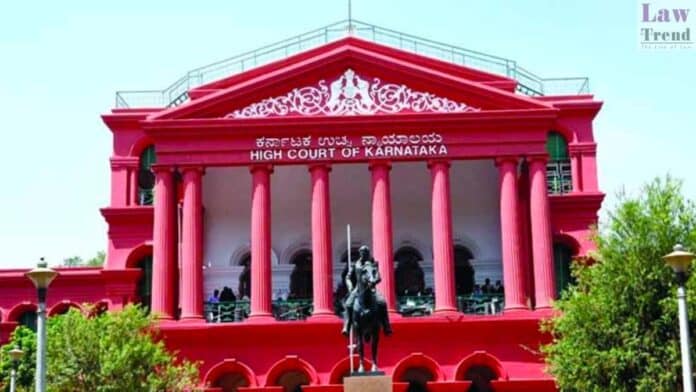The High Court of Karnataka has said that it was appropriate to “bend the arc of justice” to accommodate a student and allowed her to be enrolled as a member of the Institute of Chartered Accountants of India.
The ICAI had invoked Regulation 65 of the institute and claimed that it had only given her permission for the final courses, but the student had completed multiple foundation courses that preceded the final courses.
In a recent judgement, the court rejected this contention and called it “a contention skating on thin ice, as the foundation courses get subsumed in the final courses, and permission is granted for pursuing final courses.”

Nikitha K J, from Bengaluru, approached the court after the institute issued an order/communication on May 1, 2023, declining to accede her request for membership to practice as a Chartered Accountant.
Nikitha had simultaneously enrolled for a BCom degree and the CMA Foundation in 2017. Then she pursued a CS-Executive Course in 2018.
She also enrolled for several other courses and completed all of them except the BCom degree. She joined the Chartered Accountant Articleship training and sought permission to continue her BCom degree.
The permission was granted, and she completed BCom in 2020. She subsequently completed the CMF final exam and CS Professional course. She finally applied for enrollment in the institute.
First seeking clarification on how she pursued multiple courses, the institute then rejected her application. It also imposed a fine of Rs 10,000 on her for pursuing multiple courses.
Before the bench of Justice M Nagaprasanna, the institute submitted that as per Regulation 65, multiple courses being pursued by the student is barred who had enrolled for Articleship.
The student, however, contended that each time permission was sought and obtained to pursue a new course.
The court in its judgement said, “A student will not know the implications of law. A student knows only to study and ponder over the study material. She has studied and completed the courses. It is rather surprising that the second respondent wants to stifle the career of a student, who has pursued multiple courses and gained such acumen to practice as a Chartered Accountant.”
The court said that the student had more acumen than specified.
“It would be helpful to the Institute of Chartered Accountants, and the Society, if a student has extra acumen, than the chartered accountantship alone. Such acts of the second respondent against a student who has only studied and done nothing else, that too, after seeking permission, would not behove the 2nd respondent to be a State under Article 12 of the Constitution of India,” it said.
The court noted that the student had obtained permission from the institute on every occasion she pursued a new course. So the institute cannot now hide under the regulations.
Also Read
“The petitioner/student has been diligent in securing permissions. The mighty respondent now wants to jeopardise the career of a student on the score that it had not properly accorded permission or permission was not properly sought by the student. This act of the 2nd respondent (Institute) sans countenance,” the court said.
Rejecting all the submissions of the institute, the court in its judgement on December 7, said, “Therefore, this Court repels those submissions of the learned counsel for 2 nd respondent, for the praedictus reasons, I deem it appropriate to bend the arc of justice for a student and direct grant of Membership of the petitioner to the Institute without brooking any further delay.”
The court directed the institute to “consider addressing the grievance of the petitioner in accordance with law and enrolling her as a member of the institute bearing in mind the observations made in the course of the order.”
The institute was directed to pass an order within four weeks.







